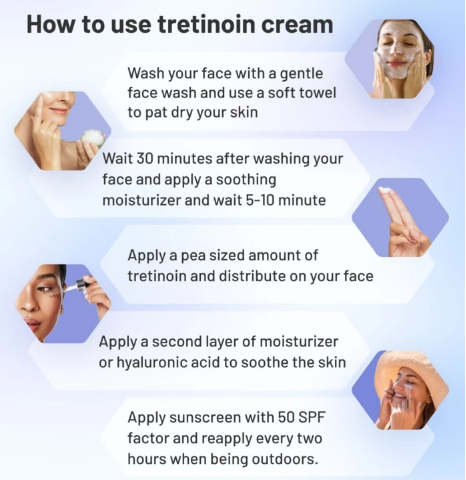Having healthy, radiant skin is a goal many strive for. But with an overload of information and countless products on the market, creating a personalized skincare routine can feel like navigating a maze. This comprehensive guide will equip you with the knowledge and simple yet effective practices to achieve and maintain that coveted glow.
Understanding Your Skin Type:
The foundation of any good skincare routine is self-awareness. Identifying your skin type – dry, oily, sensitive, or combination – is crucial. Dry skin craves hydration, while oily skin needs oil control. Sensitive skin requires gentle, fragrance-free formulas. Combination skin can have areas of both dryness and oiliness. Knowing your skin type allows you to choose products that address your specific concerns without irritating.
Here’s a breakdown of common skin types:
- Dry Skin: Feels tight, and flaky, and may show visible fine lines.
- Oily Skin: Appears shiny, has enlarged pores, and is prone to breakouts.
- Sensitive Skin: Easily reacts to products, with symptoms like redness, itching, or burning.
- Combination Skin: Has a combination of oily and dry areas, typically the T-zone (forehead, nose, chin) being oilier and cheeks being drier.
Building Your Skincare Routine:
Now that you know your skin type, let’s delve into the essential steps of a daily skincare routine:
-
Cleanse: Cleansing removes dirt, oil, makeup, and environmental pollutants that can clog pores and dull your complexion. Wash your face twice a day (morning and night) with a gentle cleanser suited to your skin type. Avoid harsh scrubs or excessive washing, which can strip away natural oils and disrupt the skin’s barrier function.
-
Tone (Optional): Toners were traditionally used to restore the skin’s pH balance after cleansing. However, most modern cleansers are already pH-balanced, making toners optional. If you choose to use one, opt for alcohol-free formulas that provide additional hydration or target specific concerns like brightening or minimizing pores.
-
Treat (Optional): This step allows you to address specific skin concerns. Serums and treatments come in a variety of formulas to target concerns like acne, hyperpigmentation, or wrinkles. Apply a thin layer of your chosen treatment after cleansing and toning.
-
Moisturize: Moisturization is vital for all skin types. It helps maintain the skin’s barrier function, keeping it hydrated, plump, and supple. Choose a moisturizer based on your skin type: lightweight and oil-free for oily skin, richer and creamier for dry skin. Apply moisturizer while your skin is still damp from cleansing for better absorption.
-
Sunscreen: Sun protection is the cornerstone of any skincare routine, regardless of season or location. Sun damage is a leading cause of premature aging, wrinkles, and hyperpigmentation. Use a broad-spectrum sunscreen with SPF 30 or higher every single day, even on cloudy days. Reapply sunscreen every two hours, or more often if sweating or swimming.
Exfoliation:
Exfoliation removes dead skin cells, revealing a brighter, smoother complexion and allowing skincare products to penetrate deeper. However, over-exfoliation can damage the skin’s barrier function. Here’s how to incorporate exfoliation effectively:
- Frequency: Exfoliate 1-2 times a week for most skin types. Sensitive skin may benefit from once a week or even less.
- Method: Choose a gentle exfoliating method based on your skin type. Physical scrubs can be too harsh for sensitive skin. Chemical exfoliants, containing ingredients like AHAs (alpha hydroxy acids) or BHAs (beta hydroxy acids), can be a good alternative.
Lifestyle Habits for Healthy Skin:
A healthy lifestyle goes hand-in-hand with glowing skin. Here are some essential habits to incorporate:
- Hydration: Drink plenty of water throughout the day to stay hydrated from the inside out. Aim for eight glasses of water daily, adjusting based on your activity level and climate.
- Diet: Eat a balanced diet rich in fruits, vegetables, and whole grains. These foods provide essential vitamins, minerals, and antioxidants that nourish your skin from within. Limit processed foods, sugary drinks, and unhealthy fats, which can contribute to inflammation and breakouts.
- Sleep: Getting enough quality sleep is crucial for skin cell regeneration and repair. Aim for 7-8 hours of sleep per night.
- Stress Management: Chronic stress can wreak havoc on your skin, leading to breakouts, dullness, and premature aging. Find healthy ways to manage stress, such as exercise, yoga, or meditation.
Seeking Professional Help:
If you have persistent skin concerns like acne, eczema, or rosacea, consulting a dermatologist is essential. They can diagnose your




